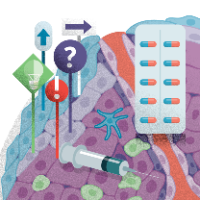DNA-encoded immunotherapeutics: ready for blast-off?
Cell & Gene Therapy Insights 2020; 1(2) 133–140
10.18609/ioi.2020.014
Immunotherapeutics have revolutionized the treatment of human cancers. These approaches include a new generation of engineered T-cells, monoclonal (mAbs) and bispecific antibodies. Although significant advances have been made in the clinic, conventional recombinant therapeutics are costly and have practical limitations including lengthy manufacturing processes, poor stability of drug product, and in vivo durability concerns. Together these barriers have restricted their use to specialized clinical settings in countries where medical access can support these complex technologies. To overcome some of these barriers and increase patient access to immunotherapeutics, innovators have been developing DNA medicines. DNA medicines are highly thermostable, easier to manufacture and highly optimized synthetic plasmid DNA constructs that are delivered in vivo with electroporation (EP) technology that enables the patient to become his or her own biological factory producing active prophylactics and therapeutics. In several proof-of-concept preclinical studies, in vivo DNA-encoded monoclonal antibodies (dMAbs) can be expressed to levels required to protect against infectious disease or to halt tumor growth. Recently, DNA plasmid constructs have been designed to express bispecific T cell antibodies to target tumors expressing human epidermal growth factor receptor 2 (ERBB2; HER2). In this brief article we discuss the versatility of DNA medicines in cancer therapeutics, outline the potential advantages over conventional therapies, and highlight the latest advances in this technology.
